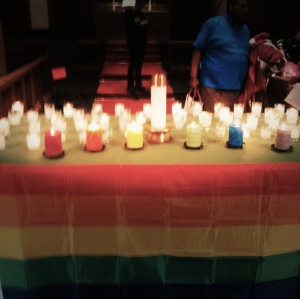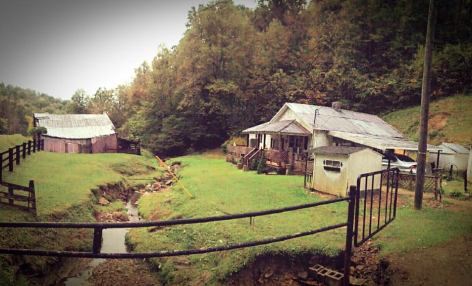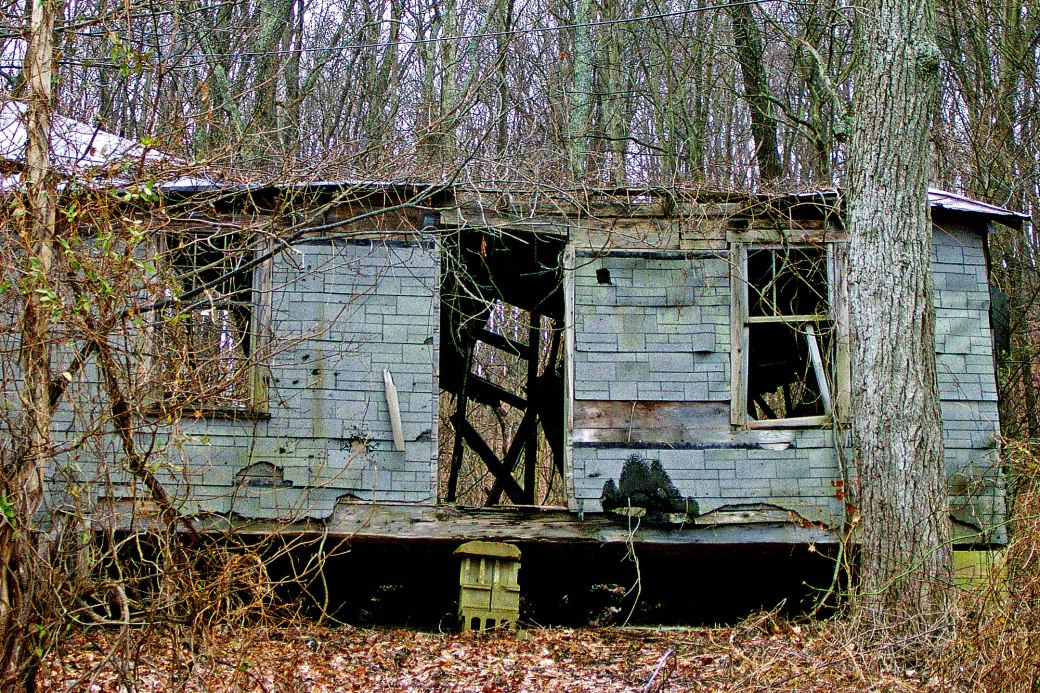this is my day. may twelfth. this is leroy’s day.
on may twelfth we were delivering furniture, a departure from our usual routine. one of our elderly caseworkers asked us to come along to visit leroy, a man just past eighty who had been with the program for years. we were there to drive the truck and haul the coffee table and locking metal cabinet up stairs.
leroy is wiry and agile, hunched at the shoulders. soft-spoken and direct, he is in constant conversation with himself. he is bald, meticulous in appearance, and fastidious about dates and times. he opened the door and pointed directly to where the new cabinet would go.
i’m not complaining, now,
I just didn’t think it would be so big.
the apartment was stunningly spare. next to the large window which provided most of the light was a dining room chair with a tattered Bible laying open on the seat, acting as the end table for the only armchair. a single sofa anchored the wall opposite the window. there was a small table with a single kitchen chair. all the rest of the floors and walls were bare, absent of any excess or ornamentation. no family photos, treasured knick-knacks, or dollar-store supplies. a cd/radio boombox was the only concession to entertainment – no television or bookshelf or even a cd collection in sight.
back in the days of paper food stamps, he would use only what he needed and return the rest to the office. he’d never accepted offers of furniture before. he isn’t one to take a stitch more than he knows he needs and is able to use. nothing in the room is superfluous.
the half-size black locking cabinet overwhelmed the room, and after a bit of back-and-forth we moved it under his careful direction to the back bedroom. the full size mattress and boxspring sat close to the floor, one corner housed two pairs of cowboy boots and three old-fashioned suitcases. we found a place for the cabinet where the open door wouldn’t hit the wall.
the HUD housing inspector, they’re so particular.
he told us about the struggle to keep the place maintained to standards, to not scuff the walls or put in the wrong lightbulb. he had also been worried that the workers who were frequently in and out might notice his record collection. the locking cabinet had been a special request.
now i’ve got a place to keep my records. and these snap-front shirts,
they’re just so handy, they’ll go in there too.
when you go to the bank, you can keep your things right there…
a few, these very few treasured possessions. his record collection – what a luxury to preserve. especially when he told us he’d given his record player away more than a decade ago, to a pastor who’d needed one to listen to old praise and teaching records. a life of measured, patient, faithfulness.
oh, i’ve got to sit down…my ticker can’t take any more.
it’s getting too hot, i’ve got to go change my shirt.
the excitement of the new coffee table, the locking cabinet (both donations from our warehouse) prompted Leroy to change from a snap-front shirt and jacket into a sweater vest which hung loosely on his spindley frame. as he eased into the recliner, he noticed the box on the sofa.
what have you got there?
oh my, oh no, oh my.
am i allowed to ask how much it cost? (no, no you’re not.) jensen.
that’s the best brand, that’s always been the best brand,
oh, i didn’t know they still made these.
it was christmas morning, twenty five years of christmas mornings as he retrieved his penknife and delicately unboxed the record player. the new coffee table was the perfect place of honor for this treasure. Leroy was transfixed by the radio dial, the volume knob, the arm and needle and turntable. the return of familiarity in a world that was growing so foreign.
i’ve never listened to this one before.
oh, that’s a good one. that’s a good one.
he retrieved a record from the bedroom, one of several that he’d gathered after he’d given away his record player. it was an old family gospel record, and we joined him in hearing it for the first time. as the needle crackled across the surface, his toes began tapping and he smiled in spite of himself.
you’re so fine, you’re so fine // you’re mine, you’re mine // i walk, and i talk, about you
every time his caseworker took him on errands, he asked her to use her phone to play “you’re so fine” by the falcons. that was his very favorite song. he didn’t have it on record, so he only go to hear it when she visited twice a month. one of our coworkers heard about the song, and tracked down the cd as one more gift for Leroy today.
i didn’t know they had recordings this old. oh, merry christmas, happy birthday,
and tell her i hope she never gets a visit from the tooth fairy like me.
he was incredulous. he just kept repeating a litany of holidays. Leroy deftly navigated to track seventeen, and played it over, and over, and over. dancing, singing along, snapping fingers and tapping toes recalling a place and time that were all of a sudden resurrected. she took a video of him dancing, unselfconscious in his sweater vest.
you’re going to have to go to the store by yourself today.
we could have left him there for a month or two or twelve, content to immerse himself in the music. this was peace, and joy all at once.
you know, the fonzie, he said heaven is going to be 1957 forever.
that’s just fine by me, that’s just fine.
he changed back into his snap front shirt and walked us to the door. heaven was here, today too, you know. something too beautiful to name, which had us all on the brink of tears. holiness, an outpouring of honor, and a grand dash of 1959.
this is my day, may twelfth. this is leroy’s day.
Leroy glanced at the calendar on the way out, marking a day that could easily have faded into obscurity. may twelfth. this is my day, he said. this is Leroy’s day.
thank you ever so much.
You’re my first cup of coffee
( my last cup of tea)
You’re so fine, you’re so fine
You’re mine, you’re mine
I walk, and I talk, about you

 I had been talking with the eighty-nine year old resident between puffs on his nebulizer, the crucial aid to breathing through his coal-black lungs. This man has lived alone since the death of his only son, and has no deeper desire to welcome us ragtag carpenters as guests in his home, to show us the love of his God who has been steadfast in the trials and abundant in the blessings.
I had been talking with the eighty-nine year old resident between puffs on his nebulizer, the crucial aid to breathing through his coal-black lungs. This man has lived alone since the death of his only son, and has no deeper desire to welcome us ragtag carpenters as guests in his home, to show us the love of his God who has been steadfast in the trials and abundant in the blessings.